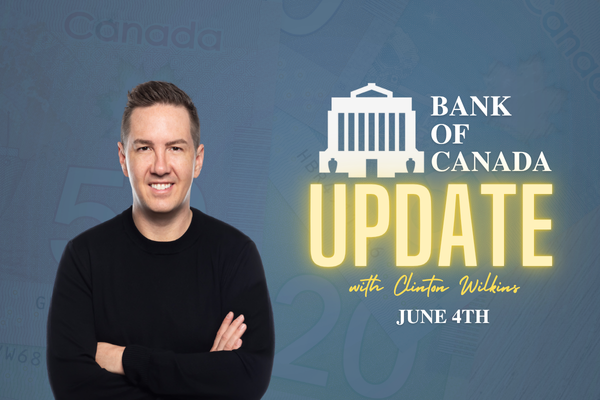Clinton Wilkins joins Todd Veinotte on 95.7 News Radio to discuss The Bank of Canada holding its key policy rate at 2.75%, marking the first pause after seven consecutive cuts.
Mortgage 101: Mortgages when you’re retired
Talking about mortgages for retired persons
Talking about mortgages for retired persons. Don’t feel like listening? Check out the audio transcript below.
This is a five minute business builder with Rick Howe, where your business comes first, on News 95.7.
Talking mortgages when you’re retired
Todd: [00:00:02] Rick, you’re going to have the first question for Clinton today. How you doing first off?
Rick: [00:00:07] Hey. Doing well.
Todd: [00:00:08] Excellent. Go ahead with your question for Clinton.
Rick: [00:00:12] Regarding older people, so say, you know, you bought your house 20-25 years ago you might have refinanced it once and now you’re early in your retirement years and your mortgage is maybe 20 or 30 percent of your appraised value. And is it a good way to take your money out as opposed to something that sounds a bit older like a reverse mortgage. The way I look at it would just is just that, you know, you’re going to say you’re going to leave your house to your kid or whatever. You know, what’s the difference if you leave it with 50% owing or 30%.
Quality of life
Clinton: [00:00:55] Exactly, yeah. And I think that’s a really good point. We’re seeing a lot of borrowers financing their homes during retirement and really the big thing is all about quality of life. So, a lot of borrowers, you know, maybe they will even have their house paid off by the time they retire but oftentimes the house is the biggest asset and you know we definitely do talk about reverse mortgages and I think those are right for some consumers. You know, if the income is very very low if they can’t service a mortgage payment great of a reverse mortgage could make sense depending on what their age is. But a lot of consumers will have, you know, a few pensions.
They have a good healthy income but they want to be able to supplement that retirement income and I think that, you know, doing maybe a home equity line of credit or a mortgage on that home makes a lot of sense. A lot of times people will borrow the money to supplement their income but also sometimes they’ll borrow money to improve the property. To make it more suitable that going into retirement maybe it’s accessible or maybe it needs some improvements. And, you know, all in all we’ll extend those amortization over a very long period of time to make it very affordable for that person.
Thinking about retirement
You know, normally when someone takes out a mortgage during retirement I will go to the maximum amortization of 25 or 30 years depending on what their situation is to make the payment as low as possible for their specific situation. And, you know, I think it makes a lot of sense. You can finance up to 80 percent of the value of the home in terms of a refinance and that still leaves a lot of equity in terms of, you know, inheritance for the family. You know family members.
Todd: [00:02:23] Paying taxes and stuff.
Clinton: [00:02:23] And paying taxes, yeah. You know, I think it’s a great point. You know, I think there’s a lot of people who are retired and seniors that are sitting on these assets they’re free and clear but they can’t really live the retirement because they’ve a very low fixed income.
Todd: [00:02:37] Thanks Rick. I appreciate it.
If you have any questions about mortgages for the self-employed, get in touch with us here.


